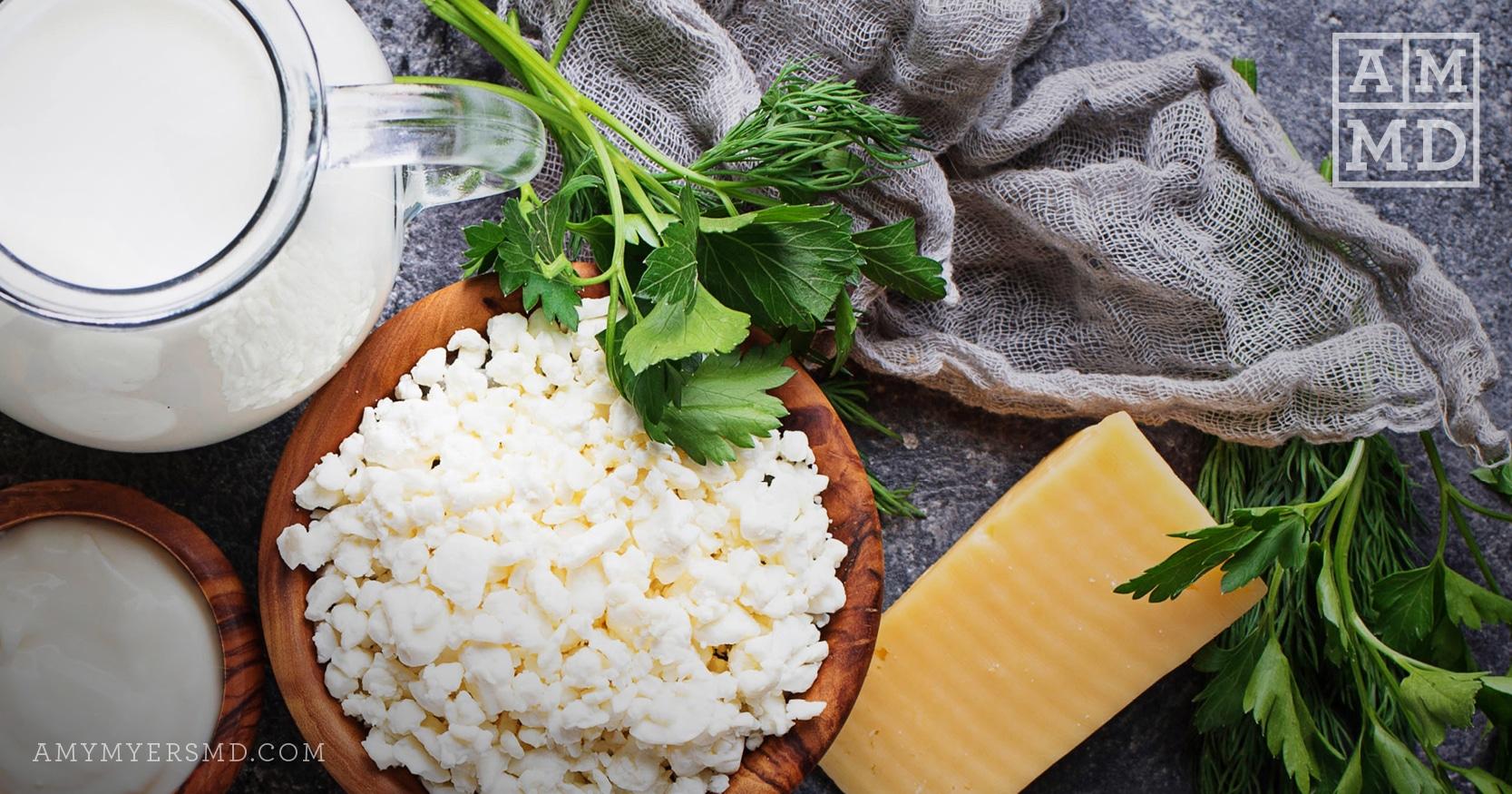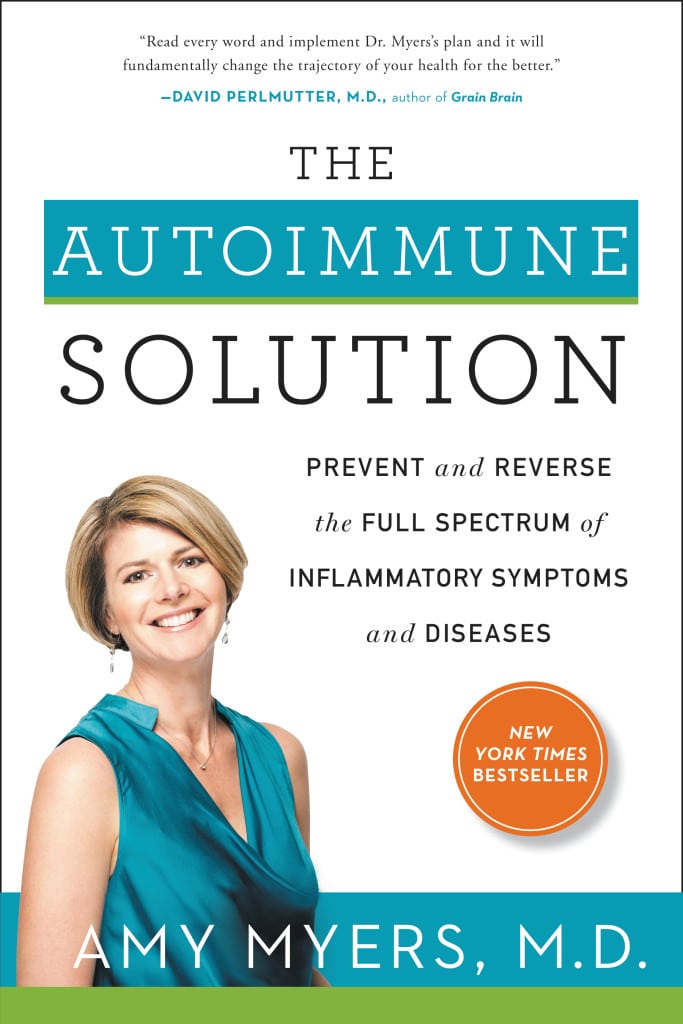All of those “Got Milk?” ads from the last decade or so would have us believe that dairy is a cornerstone of a healthy diet, providing essential nutrients, fortifying our bones, and knocking out osteoporosis left and right. But, is this true? Is consuming dairy necessary or even healthy for most people? Or do the dangers of dairy have a greater impact on your health than you thought?
The truth is, dairy can lead to countless health issues and, for many, can cause more harm than good. You can discover how dairy wreaks havoc on your gut health below.
[lwptoc]
It is Highly Inflammatory
Dairy causes inflammation in a large percent of the population resulting in digestive issues such as bloating, gas, constipation, and diarrhea, as well as other symptoms including acne, and a stronger presentation of autistic behaviors. I believe dairy is one of the most inflammatory foods in our modern diet, second only to gluten.
What is it about dairy that causes an inflammatory response? Is everyone with a dairy sensitivity lactose intolerant? There are two components of dairy that tend to cause issues for people, the sugar and the proteins. People who are lactose intolerant do not produce the lactase enzyme, which is required to break down lactose, a sugar found in milk, causing digestive issues whenever they consume dairy products. People who do produce the lactase enzyme but still react poorly to milk are responding to the two proteins found in milk, casein and whey. Casein is a protein with a very similar molecular structure to gluten and 50% of people who are gluten intolerant are casein intolerant as well.
It’s Often Full of Hormones and Antibiotics
Many times when people drink milk they are consuming far more than just milk. American dairy farmers have long been injecting cows with a genetically engineered bovine growth hormone called rBGH to increase milk production. This forced increase in milk production often leads to an udder infection in cows called mastitis, which is then treated with courses of antibiotics, which can make their way into your dairy products.
All of these concerns about the health benefits and safety of dairy can lead to even more questions. Is all dairy bad, are alternative sources of dairy any better? Where will I get my calcium if not from dairy? Let’s take a look at these.
What About Goat’s Milk and Sheep’s Milk?
Some people who choose to eliminate cow’s milk from their diet still enjoy goat or sheep milk, as they find it much easier to tolerate. Although they have a similar lactose content to cow’s milk, meaning they will not be any easier to digest if you are lactose intolerant, they do have a different type of casein protein, which makes them easier for casein sensitive people to handle.
Casein exists in two variants, A1 beta-casein and A2 beta-casein, which are differentiated only by a single amino acid in their protein chains. A2 is considered the original beta-casein because A1 only appeared a few thousand years ago after a mutation occurred in European cow herds, and it is often the A1 beta-casein that people react poorly to. Goat’s milk and sheep’s milk lack the A1 beta-casein, which is what makes them more tolerable, but because the A1 and A2 proteins are so similar, these milks can still cause problems for some.
What About Organic and Raw Milk?
If you are not casein sensitive and still want to consume cow’s milk, organic, and raw milk can certainly be a healthier and less chemical-laden route to go. Organic and raw milk comes from cows that have not been injected with rGBH and have not been treated with antibiotics, which eliminates the concern that these chemicals will find their way into your milk.
Raw milk, although contentiously debated, does have many health benefits that pasteurized milk lacks. The pasteurizing process, which is intended to kill harmful bacteria, kills many of the helpful enzymes that occur naturally in milk as well. In fact, one of the enzymes present in raw milk that is missing in pasteurized milk is the lactase enzyme, meaning people who are lactose intolerant are actually able to drink raw milk because it contains the enzyme needed to break down lactose their body is unable to produce.
Ultimately, the decision of whether or not to consume dairy and from what source rests with your body. Try eliminating dairy from your diet altogether and pay attention to how your body reacts, then try reintroducing dairy in its different forms and sources and notice how you respond.
If you do decide to eliminate dairy, fear not, there are plenty of other natural sources of calcium you can incorporate into your diet!
10 Non-Dairy Sources of Calcium
1. Almonds*
2. Kale
3. Oranges
4. Collard Greens
5. Broccoli
6. Figs
7. Spinach
8. Rice*, almond*, hemp* and coconut milks
9. Sesame seeds*
10. Tofu*
* Keep in mind that almonds, rice, hemp and sesame seeds, and tofu (soy) are great options for calcium once you have completed The Myers Way® and have successfully reintroduced them into your diet.
Want delicious, dairy-free recipes? Try my 30-day meal plan in The Autoimmune Solution!
Whether you or someone in your family is one of the 50 million Americans suffering from fibromyalgia, chronic fatigue syndrome, or another autoimmune disorder, there is hope for prevention and even reversal of the debilitating symptoms that accompany these conditions.
For years, my mission has been to help others find relief from everything from arthritis to Graves’ disease, and now I’ve put my revolutionary, proven program into a plan that you can follow at home. The Autoimmune Solution is my step-by-step approach that restores the body to its natural healthy state in 30 days by eliminating toxic foods, introducing restorative ingredients, and identifying environmental toxins.

